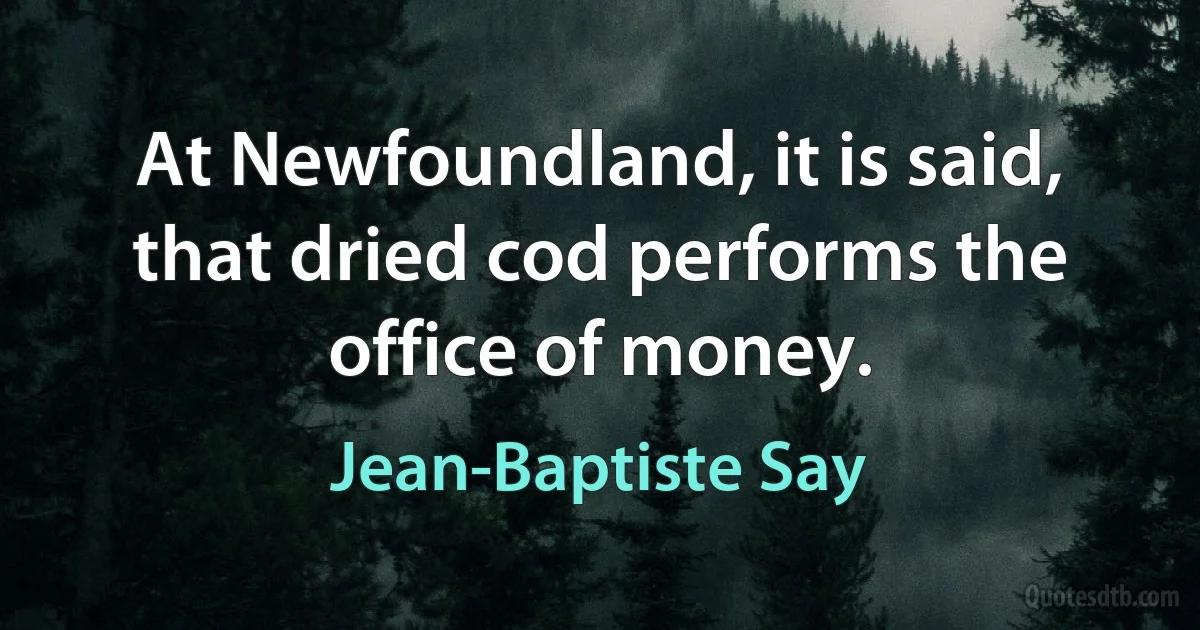Jean-Baptiste Say quotes
A science only advances with certainty, when the plan of inquiry and the object of our researches have been clearly defined; otherwise a small number of truths are loosely laid hold of, without their connexion being perceived, and numerous errors, without being enabled to detect their fallacy.

Jean-Baptiste Say
Capital can seldom be made productive, without undergoing several changes both of form and of place, the risk of which is always more or less alarming to persons unaccustomed to the operations of industry; whereas, on the contrary, landed property produces without any change of either quality or position.

Jean-Baptiste Say
Every individual, from the common mechanic, that works in wood or clay, to the prime minister that regulates with the dash of his pen the agriculture, the breeding of cattle, the mining, or the commerce of a nation, will perform his business the better, the better he understands the nature of things, and the more his understanding is enlightened.

Jean-Baptiste Say



